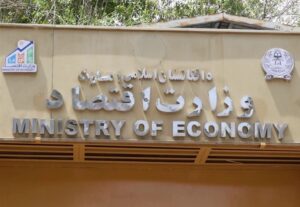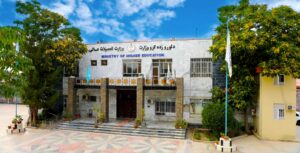KABUL (SW) – These days, the streets of Kabul and other major cities are eerily silent, with no sounds of happy children or the excitement that typically marks the end of the school year. The academic year has ended, but the sixth-grade girls, with lumps in their throats and despair in their eyes, stare at their schools and textbooks as if they know they will no longer have the opportunity to write or learn.
Somaya and 12 other girls who completed their sixth grade this year and were interviewed for this report are more worried and hopeless than ever. Somaya, who ranked first in her class, carries the weight of concern rather than the joy of her achievement. She and her classmates gather in the school’s small courtyard, their lifeless eyes looking toward a dark future.
Somaya says, “I feel very bad. I can’t even study for my exams. I don’t know how I will continue my education. I wanted to become a doctor in the future, but now I can’t.”
Another top student, Muzhda, who also completed sixth grade this year, does not hide her tears. She says in a choked voice, “Unfortunately, we have no hope of becoming successful members of society and helping our country thrive. I wanted to be a successful journalist in the future. I don’t think the school gates will ever open for us again, and we’ll never achieve our dreams.”
The tired faces and tearful voices of these girls paint a picture of a lost generation whose right to education has been taken from them. They grow up in the shadow of deprivation, forced to remain silent about their dreams. Hasina and Najmia, who were once eager learners up until fifth grade, now have no motivation to open their textbooks.
Hasina, holding back tears, says, “I studied fifth grade with excitement, but when I reached sixth grade, I realized I couldn’t continue my studies. It broke my heart. It affected my spirit and soul deeply. I wanted to become a successful doctor, but now there is no hope.”
Najmia also says, “I studied fifth grade with enthusiasm, but in sixth grade, I couldn’t study properly because I was so worried about next year and my exams. I hope the school gates open for us again.”
Meanwhile, girls who have been out of school for three years have different stories to tell. This report also includes interviews with 15 girls who were deprived of continuing their education three years ago.
Some have turned to online education, others to different trades, and some have spent these three years without any structured plans.
Samira, one of these girls, says, “Since I can’t go to school anymore, I’ll either take a course or go to a madrassa. I always pray that schools reopen so that all our sisters can return to school and continue their education.”
Aynoor, who has turned to tailoring, says, “Since schools were closed to us, I’ve been attending a tailoring course in embroidery. My parents didn’t want me to stay idle.”
The mothers of these students are also concerned about their daughters’ futures. Nooriya from Faryab and Lida from Kunduz are both worried about their daughters’ futures and say that if their daughters cannot continue their education, a dark future awaits them.
Nooriya says, “My daughters’ future is ruined. I am so upset. In our time, there were no schools, no freedom, and we are illiterate. I can’t even read a line. It breaks my heart. If the school gates don’t open, their future will be worse than ours.”
Lida adds, “This has hurt my daughters so much, and I see it as a tragedy. If they could study, they would have a bright future. But if they can’t, they will be forced into marriage, and I see a dark future ahead of them.”
Educational experts and sociologists emphasize the importance of girls’ education. Ahmad Saber Taheri, an educational expert, says, “Girls who are educated usually encourage future generations to learn as educated mothers. If the Taliban/Islamic Emirate does not find a solution to this problem, Afghanistan will face a shortage of teachers in the coming years.”
Ahmad Rashed Sediqi, a sociologist, also states, “Without a doubt, education is a fundamental need in every society. Today, most family concerns revolve around their daughters. If these women are not educated, they will cause numerous problems in the family and society. A society without education will face growing divisions and intolerance.”
Farahnaz Meraj, a women’s rights activist, considers the educational restrictions for girls to be a serious humanitarian challenge. “The restriction on education for girls beyond sixth grade is one of the most serious humanitarian challenges in Afghanistan. This deprivation not only violates the fundamental rights of girls to education and progress, but also has deep negative effects on society. The lack of education for half of the population reduces opportunities for development and economic growth.”
We attempted to get the perspective of the de-facto government on this issue, but despite repeated efforts, we were unable to get a response.
Three years after the closure of schools for girls in Afghanistan, there is still no news of schools reopening for them. Although many of these girls and their families hope that the school gates will open for them in the future, no tangible changes have been seen so far. In the latest reports, it has also been reported that the education of women and girls in medical institutes has been banned.






